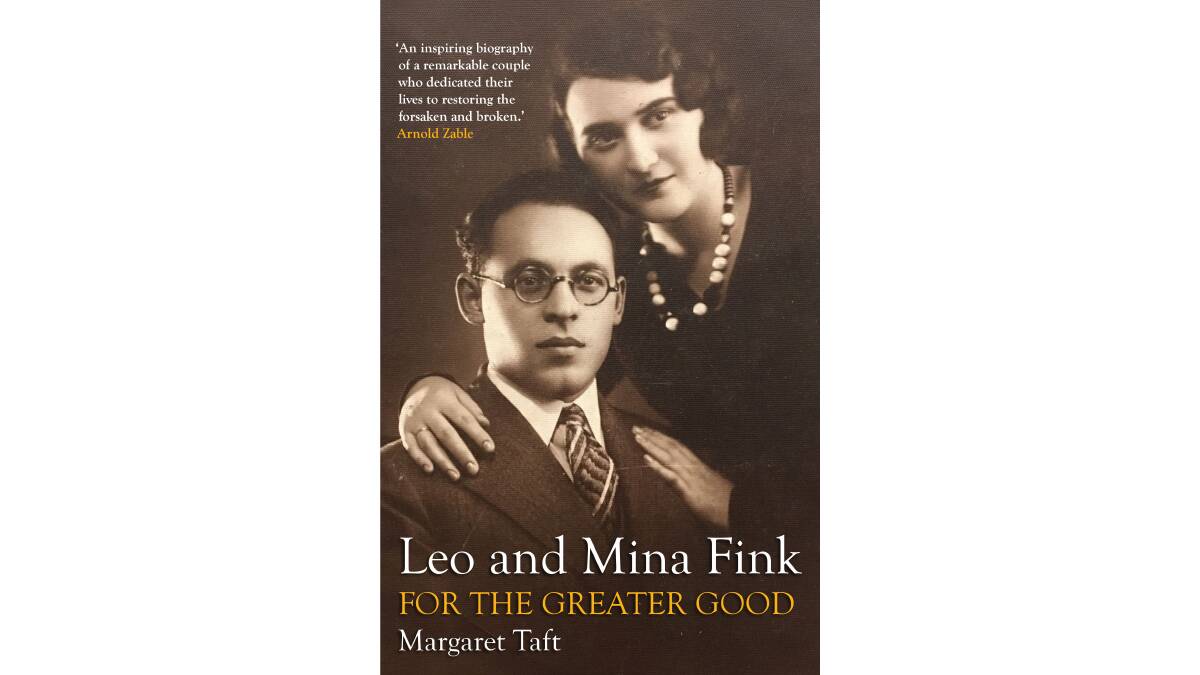- Leo and Mina Fink: For the Greater Good, by Margaret Taft. Monash University Press, $34.95.
Scenes at the wharf made headline news. Emotions spilled over as the new arrivals made their way onshore. Men and women sobbed uncontrollably. Many stumbled over luggage as they rushed to reach a familiar face in the crowd.
This is the scene that Margaret Taft conjures of the arrival of the Johan de Witt carrying Jewish refugees on March 16, 1947.

The cargo of holocaust survivors arrived largely through the efforts of Leo and Mina Fink and in the face of resistance from the Australian immigration authorities.
It was one of many such committed actions for Jewish welfare recounted in this biography of the famous couple.
Author Margaret Taft, herself born of post-war Jewish immigrants, enters into the subject with close sympathy.
Leo and Mina Fink lived a prominent life in the Melbourne Jewish community through a particularly important time for Jewish people worldwide.
Born in eastern Europe in the town of Bialystok, between Warsaw and St Petersburg, they were products of an old world - before the Russian Revolution, pre-First World War, in the famed shtetls of eastern European Jewish lore.
But Europe was in the throes of change. There were anti-semitic progroms even before the beginning of the Second World War and the horrors of Nazism.
Mina and Leo were both raised with community values that taught that Jewish survival meant sticking together.
They came to Australia in 1932 and set themselves up in Melbourne, where Leo continued the family textile business.
They became affluent, and turned their attention to community effort.
This was at a time when Melbourne Jewish life was more focused on integration, something the Finks did not favour.
Instead the Finks set about advocating for many Jewish causes and as the Second World War progressed, became crucial in the support from Australia for Holocaust survivors.
Leo Fink was known for organising the transport of Jewish refugees - this book documents his tireless pressure and negotiation with the immigration minister of the day, Arthur Calwell.
Mina, too, was very involved in community leadership - among other things, championing and translating the story of the Lodz ghetto children, and helping set up the Melbourne holocaust museum later in her life.
This scholarly book recounts faithfully the efforts of this community-minded couple who had such an impact on the Jewish community in Australia. It will be an important resource for scholars of Australian history.

